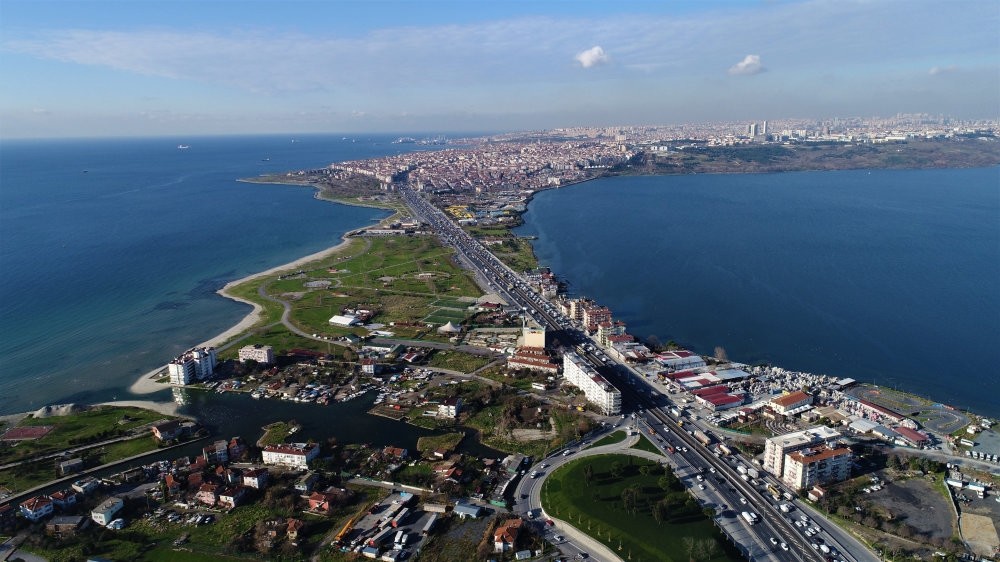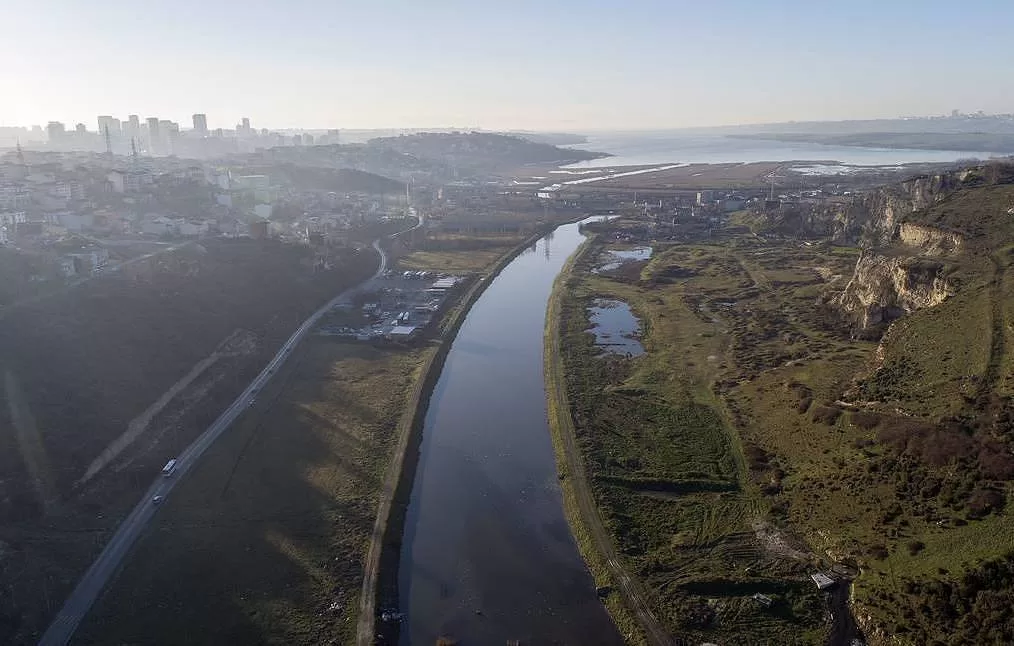Europe is gearing up to construct one of the world’s busiest canals with a new colossal maritime corridor as Turkey surges forward on its ambitious Istanbul Canal project. Pioneered by President Recep Tayyip Erdogan in 2021, this initiative vows to elevate Istanbul into a pivotal global trading center at a staggering cost of $25 billion. The canal would also bisect the European side of Istanbul, forming an island between Asia and Europe. The grand plan was initially met with scepticism over potential threats to Istanbul’s natural habitat. However, the Turkish authorities have pushed onwards, setting their sights on realising their 2023 and 2053 economic objectives. The Turkish government believes that the boon the waterway would provide the nation is unprecedented. Situated in Istanbul’s western domain, the corridor will forge a navigable link between the Black Sea and the Sea of Marmara.
Project Factsheet
Location: Europe
Depth: 25 metres
Country: Istanbul
Significance: Promote trade and transport in Europe
Project duration: 4 years
Cost of Construction: U.S. $25 Billion
The Significance of One of the World’s Busiest Canals in Europe
The construction of one of the world’s busiest canals in Europe is set to ensure economic growth for Turkey and other European Nations. While the benefits of Canal Istanbul are endless, the driving force remains reducing traffic on the Bosphorus. It also seeks to urbanize Istanbul’s suburbs. The canal will reduce traffic on the Bosphorus, “As there is no alternative route at the moment, transitions to the Black Sea result in congested traffic,” said former Turkey’s minister of transport Ahmet Arslan. “Since ships passing through the Bosphorus carry dangerous goods, an alternate route will reduce the risk posed to one strait,” he added. “Canal Istanbul is not just a canal project. New parks and buildings will be built around the canal and merged with the rest of the city, contributing to urbanisation.”
In 2021, President Erdogan proudly heralded the venture as his “crazy project,”insighting its transformative potential. He declared: “Today we are opening a new page in the history of Turkey’s development. We see Canal Istanbul as a project to save the future of Istanbul. It will ensure the safety of life and property of Istanbul’s Bosphorus and the citizens around it.” The Istanbul Canal, set for completion in 2027, will elevate Istanbul’s status as a global trade hub. Furthermore, it will offer a crucial waterway running parallel to the famed Bosphorus Strait.
Also read:
The State of Affairs Regarding the Istanbul Canal
Measuring an impressive 45 kilometres in length, the canal’s breadth will vary from 400 metres to 1000 metres. Furthermore, it is expected to have a depth of approximately 25 metres. It will also be straddled by six bridges, seamlessly connecting it to Istanbuls European expanse. The Istanbul Canal sets itself as one of the world’s busiest canals due to its strategic location. This strategic positioning is anticipated to draw many commercial and tourism ventures, further boosting the city’s economic outlook. Constructing one of the world’s busiest canals carries an estimated cost of $25 billion, with $10 billion allocated for developing areas on either side of the canal. The $15 billion is allocated for the construction of the canal itself.
This substantial investment underscores Turkey’s dedication to establishing a contemporary infrastructure. It also shows the nation’s zeal to promote economic expansion and bolster its international reputation. As the canal project advances, it promises to transform Istanbul’s cityscape and cement Turkey’s role as a significant figure in global trade and commerce. The project leverages local and international expertise to ensure its success. It brings on board local-based companies such as Yapi Merkezi and Cimko. International companies such as Bechtel are also expected to facilitate the project’s implementation.
Also read:
Istanbul Metro construction project receives US$ 73M subsidy
Construction Commences on the $8B World’s Longest Underwater Rail and Road Tunnel in Europe

Leave a Reply